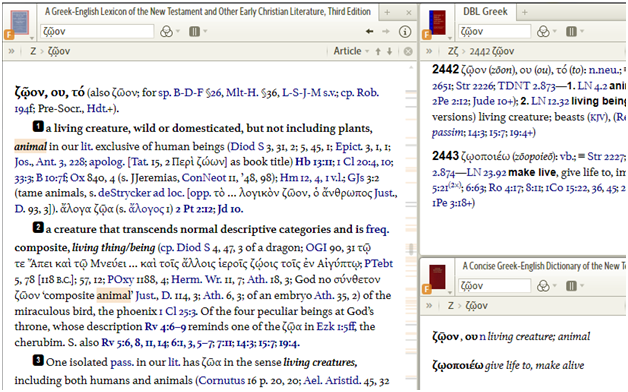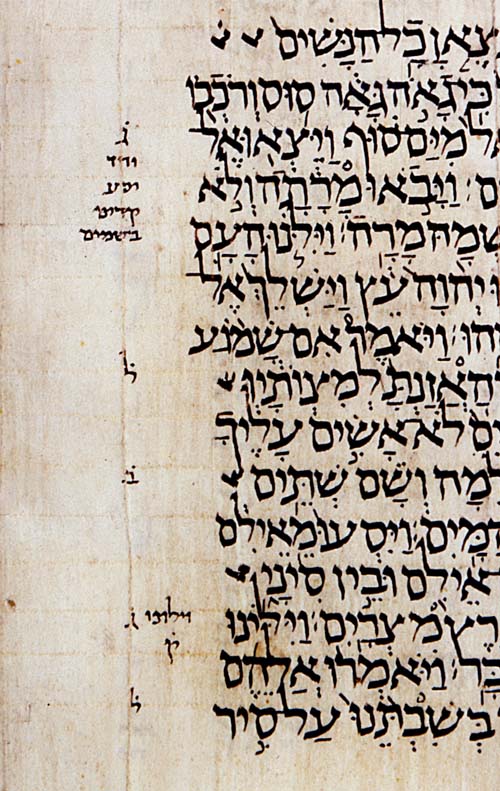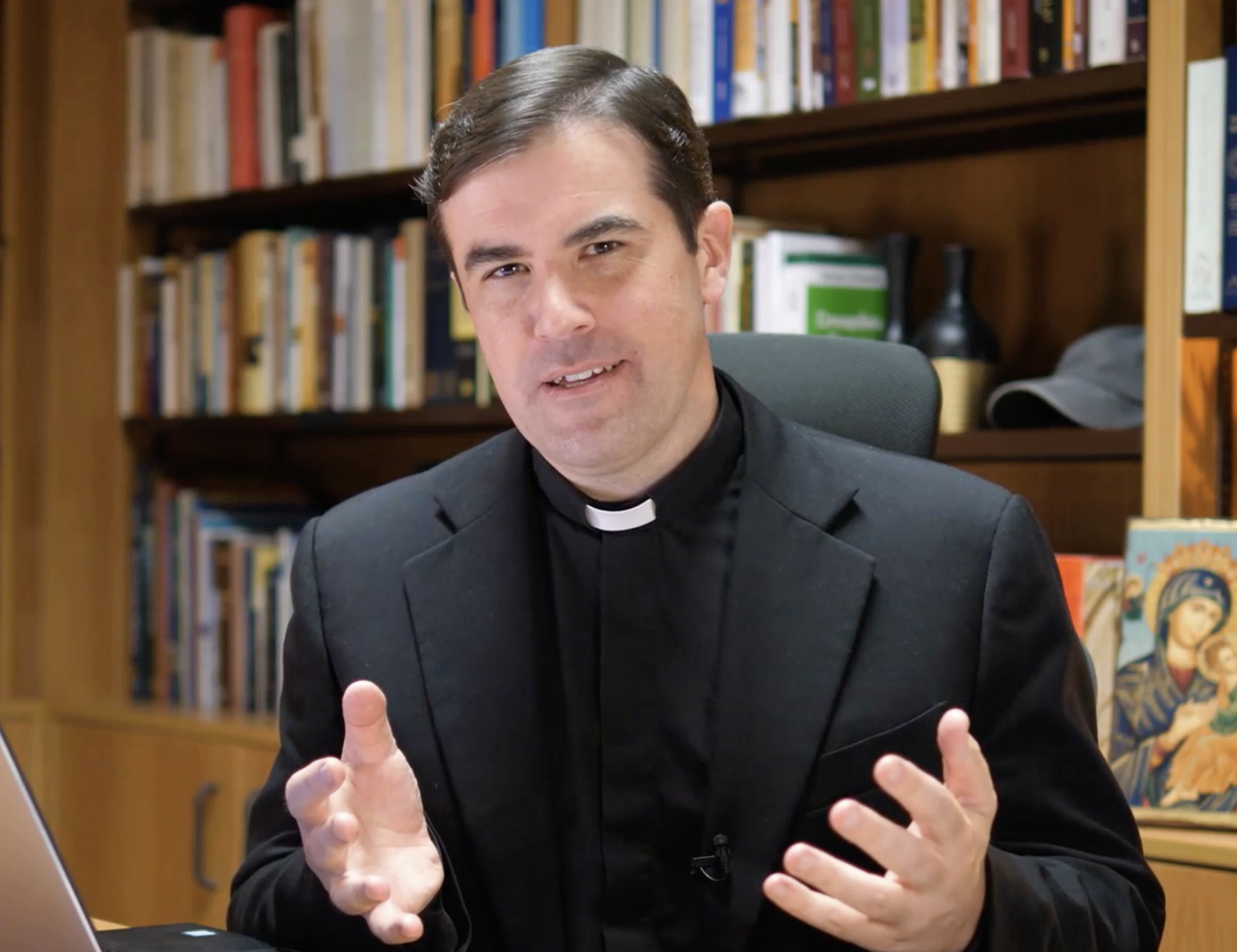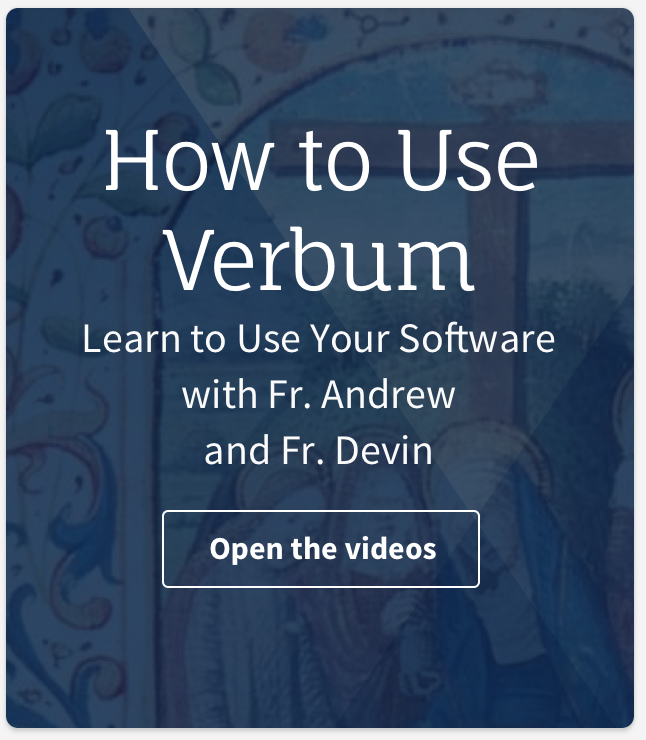Today’s guest post is by Isaiah Hoogendyk, language editor for the content innovation department.
A couple weeks ago, I wrote about a great way to expand your understanding of the Church’s early apostolic witness. By studying the Apostolic Fathers (AF), you can better grasp the context of the teachings Our Lord gave the apostles before His death and resurrection, and you can deepen your comprehension of the world in which the apostles and earliest Church leaders lived.
And for those who want to go deeper still, I discussed how studying the Apostolic Fathers’ original Greek text informs your understanding of the New Testament’s language. So now that your appetite for early Church exegetical studies is whetted, allow me to tell you about what is considered by many the definitive lexicon for New Testament Greek studies.
It is officially known as A Greek–English Lexicon of the New Testament and Other Early Christian Literature, so you can probably understand why people have picked a shorter title when talking about this illustrious compendium. But why “BDAG” (i.e., “bee-dag”)? Because these are the initials of the four lexicographers who made it happen: Bauer, Danker, Arndt, and Gingrich. Thanks especially to Danker (who, sadly, passed on earlier this year at the ripe age of 91), the BDAG has several excellent features.
First, it often distinguishes between two or more sense definitions for each Greek word. For each of these senses, there is given an “extended definition” (in bold directly following the sense number), which helps to explain unambiguously how the word should be understood in English, and a “formal equivalent” (in bold and italics after the extended definition), which gives a parallel English gloss in as few words as possible. For instance, the Greek lemma ζῷον has three distinct senses. The first sense includes the extended definition “a living creature, wild or domesticated, but not including plants.” Following this is the formal equivalent, “animal.”
Second, it includes numerous links to pertinent New Testament references (in bold), as well as Old Testament, Josephus, and Philo references and citations of key classical Greek texts. But the BDAG lexicographers didn’t stop there: they also included Apostolic Fathers references, linked, as always, to the appropriate locations. See, for instance, under the first sense above, “Hb 13:11” followed by “1 Cl 20:4, 10; 33:3; B 10:7f.” The first is a reference to the book of Hebrews, while the others link directly to, respectively, the First Epistle of Clement and the Epistle of Barnabas.
But wait; does this mean the BDAG includes all Greek words found in the AF, whether or not they appear in the NT? Yes. In fact, when you study the original Greek text of the AF, or use a reverse interlinear, you will be able to find a useful and lucid definition for every Greek word. This is crucial, considering that there are over 1200 words in the Apostolic Fathers not found in the NT.
Here’s an example of one of those words. The Catechism of the Catholic Church cites numerous AF passages. In paragraph 2240, the Catechism addresses our role in the world, specifically our duty to submit to secular authorities: this is, in fact, quite scriptural, being addressed by St. Paul in his first letter to Timothy (1 Tim. 2:2f). This notion was further expounded by the writer of the Epistle to Diognetus, who says that God has assigned the Church a “noble position” in the world, comparing this role to how the soul “holds the body together.” He then says that Christians are “not allowed to desert it [the noble position].”
Here, the word “allowed” is θεμιτός. When we look it up in the BDAG, we see that this word does not occur in the NT. However, when we run a lemma search for this word in the same resource (the AF), we find that it occurs in only one other verse in the AF—1 Clement 63.1:
Therefore it is right (θεμιτός) for us, having studied so many and such great examples, to bow the neck and, adopting the attitude of obedience, to submit to those who are the leaders of our souls, so that by ceasing from this futile dissension we may attain the goal that is truly set before us, free from all blame.
So, by using the contextual info, along with the extended definition provided in the BDAG, we learn that θεμιτός has the sense of “pertaining to being appropriate or right, with implication that the thing so described is not a matter of codified law but unwritten procedure based on custom and awareness of the transcendent.”
I could go on, but it will have to wait for another post. Later, I’ll demonstrate more of the dynamic ways you can use the Apostolic Fathers, the BDAG, and other Ancient Greek resources in Logos Bible Software to expand your knowledge of the Early Church and the language she used.








[…] […]
Hi, I was wondering why I should buy BDAG. I have the Silver package with the the Build you Catholic resources package and the Silver has lexicon stuff. So why is this better?
If you want to get more out of Biblical Greek studies, especially as it relates to the New Testament and the Apostolic Fathers, then the BDAG is (almost) indispensable. As stated above, this lexicon includes distinct “sense definitions” given for each Greek word, and the pertinent references (including NT, AF, Josephus, Philo, LXX and other ancient Greek texts) where the Greek word is used in that sense.
This means that the BDAG is a perfect blend of the *sense disambiguation* given in the Dictionary of Biblical Languages and Louw-Nida (i.e., “Greek-English Lexicon of the New Testament based on Semantic Domains”), both of which come with Silver; and the *example ancient Greek references* given in something like the LSJ (Liddell-Scott), which you have to buy separately (though this is also a great resource to have): but it comes all in one resource, and is simultaneously more comprehensive and precise than those other resources.
Can you get by without BDAG? Perhaps, but as a *single* lexical resource for Biblical and Early Church Greek studies, they don’t make ’em better than BDAG; so why would you want to get by without it?